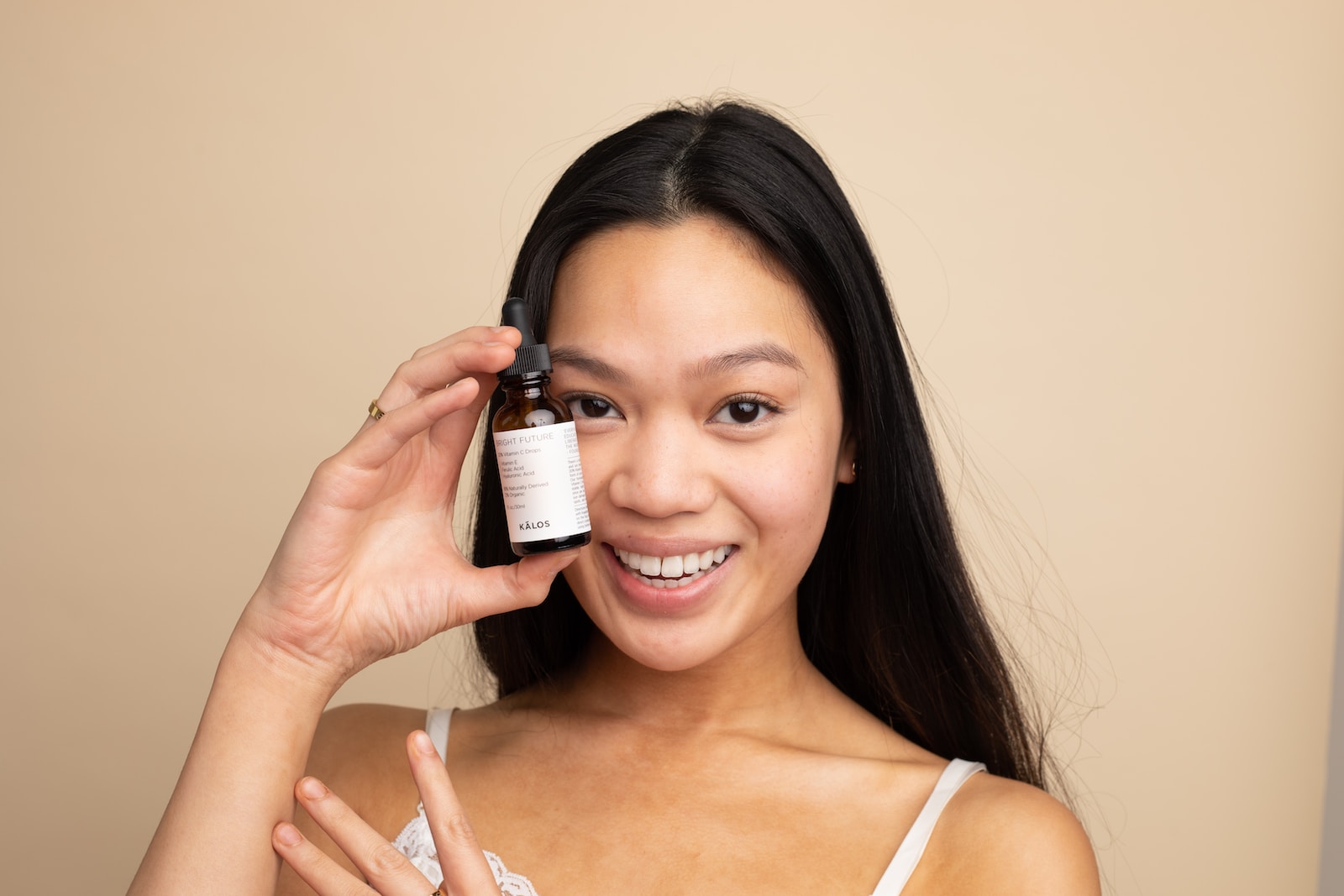Table of Contents
Vitamin C is an essential nutrient for overall health. It is also a powerful antioxidant that can protect the skin from damage. Vitamin C has many benefits for skin, including reducing wrinkles and fine lines, boosting collagen production, improving skin elasticity, brightening skin tone, reducing hyperpigmentation, protecting against sun damage, and promoting wound healing.
What is vitamin C?
Vitamin C is a water-soluble vitamin that is essential for human health. It is found in many fruits and vegetables, including citrus fruits, broccoli, strawberries, and tomatoes. Vitamin C is an antioxidant, which means that it helps protect cells from damage caused by free radicals. Free radicals are unstable molecules that can damage cells and contribute to the aging process.

The Importance of Vitamin C for Skin
Antioxidant Protection
Did you know that your skin is always battling invisible enemies? These enemies, known as free radicals, come from environmental pollutants, sun exposure, and even our own body’s metabolic processes. Over time, they can damage our skin cells, leading to premature aging and dull skin
But fear not, Vitamin C is here to save the day! This powerful antioxidant neutralizes these harmful free radicals, shielding your skin from oxidative stress. Regular application can result in a reduction in signs of aging, such as fine lines and wrinkles, leading to a brighter, healthier complexion.
Promotes Collagen Production
Imagine your skin as a mattress. Collagen is like the springs in the mattress that keeps it firm and prevents it from sagging. As we age, the ‘springs’ start to wear out, and our skin begins to lose its firmness.
Vitamin C is a vital player in collagen synthesis. It aids in maintaining the strength and stability of collagen, ensuring your skin remains plump, youthful, and radiant. In essence, it helps keep your skin’s ‘mattress’ firm and bouncy!
Enhances Skin Repair
Vitamin C is also an essential component in the body’s wound healing process. It aids in repairing damaged skin cells, reducing the appearance of scars, inflammation, and hyperpigmentation. It’s like your skin’s personal repair system, helping you maintain a clear, flawless complexion.
How does vitamin C work?
Vitamin C works by neutralizing free radicals and promoting the production of collagen. Collagen is a protein that gives skin its strength and elasticity. As we age, our bodies produce less collagen, which can lead to wrinkles, fine lines, and sagging skin. Vitamin C can help to boost collagen production and improve skin elasticity, which can help to reduce the appearance of aging.

Benefits of vitamin C for skin
- Reduces wrinkles and fine lines: Vitamin C is a powerful antioxidant that can help to protect skin from damage caused by free radicals. This can help to reduce the appearance of wrinkles and fine lines.
- Boosts collagen production: As we age, our bodies produce less collagen, which can lead to wrinkles, fine lines, and sagging skin. Vitamin C can help to boost collagen production and improve skin elasticity, which can help to reduce the appearance of aging.
- Improves skin elasticity: Vitamin C helps to keep skin hydrated and plump, which can improve skin elasticity. This can help to reduce the appearance of wrinkles and fine lines.
- Brightens skin tone: Vitamin C can help to brighten skin tone by reducing hyperpigmentation. Hyperpigmentation is the darkening of the skin caused by an increase in melanin production. Vitamin C can help to inhibit melanin production and lighten dark spots.
- Reduces hyperpigmentation: Vitamin C can help to reduce hyperpigmentation, which is the darkening of the skin caused by an increase in melanin production. Melanin is the pigment that gives skin its color. Too much melanin can lead to dark spots, age spots, and melasma. Vitamin C can help to inhibit melanin production and lighten dark spots.
- Protects against sun damage: Vitamin C is a powerful antioxidant that can help to protect skin from damage caused by the sun’s ultraviolet (UV) rays. UV rays can damage collagen and elastin, which can lead to wrinkles, fine lines, and sagging skin. Vitamin C can help to protect skin from UV damage and reduce the risk of premature aging.
- Promotes wound healing: Vitamin C is essential for wound healing. It helps to promote the production of new collagen and elastin, which helps to repair damaged skin. Vitamin C can also help to reduce inflammation, which can speed up the healing process.
How to use vitamin C for skin
There are two main ways to use vitamin C for skin: topical vitamin C serums and oral vitamin C supplements.
- Topical vitamin C serums: Topical vitamin C serums are the most effective way to deliver vitamin C to the skin. They are available in a variety of concentrations, so it is important to choose a serum that is right for your skin type. Topical vitamin C serums should be applied to the skin twice daily, morning and evening.
- Oral vitamin C supplements: Oral vitamin C supplements can also be beneficial for skin health. However, they are not as effective as topical vitamin C serums. Oral vitamin C supplements should be taken with food to improve absorption.

Side effects of vitamin C for skin
- Irritation: Some people may experience skin irritation, redness, or dryness when using topical vitamin C serums. If you experience any irritation, stop using the serum and consult with a dermatologist.
- Allergic reactions: In rare cases, people may experience an allergic reaction to vitamin C. Symptoms of an allergic reaction can include hives, swelling, and difficulty breathing. If you experience any of these symptoms, seek medical attention immediately.
Expert Recommendations
For maximum benefits, dermatologists often recommend applying Vitamin C serums in the morning. This is because Vitamin C can boost the efficacy of your sunscreen, providing better protection against harmful UV rays.
Top Vitamin C Products for Skin
Navigating the world of Vitamin C products can be daunting. Some popular choices amongst skincare enthusiasts and experts alike include SkinCeuticals C E Ferulic, Drunk Elephant C-Firma Day Serum, and Paula’s Choice C15 Super Booster. These are renowned for their quality and effectiveness, but always do your research to find what suits your skin best.
Conclusion
Vitamin C is a powerful antioxidant that can have many benefits for skin. It can help to reduce wrinkles and fine lines, boost collagen production, improve skin elasticity, brighten skin tone, reduce hyperpigmentation, protect against sun damage, and promote wound healing.
If you are looking for ways to improve the health and appearance of your skin, vitamin C is a great option. You can use topical vitamin C serums or oral vitamin C supplements to get the benefits of vitamin C for your skin.
FAQs
Q: What is the best form of vitamin C for skin?
A: The best form of vitamin C for skin is L-ascorbic acid. L-ascorbic acid is the most stable form of vitamin C and it is easily absorbed by the skin.
Q: How long does it take to see results from using vitamin C for skin?
A: It can take several weeks or months to see results from using vitamin C for skin. However, most people will start to see some improvement in the appearance of their skin within a few weeks.
Q: What is the best way to use vitamin C for skin?
A: The best way to use vitamin C for skin is to use a topical vitamin C serum. Topical vitamin C serums are the most effective way to deliver vitamin C to the skin. They should be applied to the skin twice daily, morning and evening.
Q: Are there any risks associated with using vitamin C for skin?
A: Vitamin C is generally safe for most people. However, some people may experience side effects, such as skin irritation, redness, or dryness. If you experience any of these side effects, stop using the serum and consult with a dermatologist.
Q: What are some other skin-friendly vitamins?
A: Other skin-friendly vitamins include vitamin E, vitamin A, and vitamin B3. These vitamins can help to protect the skin from damage, improve skin elasticity, and reduce the appearance of wrinkles.